New ADB-Tajikistan Partnership Emphasizes improving Investment Climate
The Asian Development Bank (ADB) and Tajikistan have agreed on a new 5-year partnership strategy to promote more sustained and inclusive growth that is less susceptible to external shocks, and create higher-paying jobs.
“ADB has been supporting Tajikistan’s development and poverty reduction efforts since 1998, with total financing of over $1.4 billion. The country has made significant progress in poverty reduction, but further challenges remain,” said ADB Vice-President Wencai Zhang, who launched the strategy in Dushanbe today. “Our main objective is to improve the investment climate to attract more foreign and domestic investment, and to develop infrastructure for the people.»
The country has been reliant on exports of two commodities (raw cotton and unwrought aluminum) and inflows of remittances from Tajik migrant workers, mainly from the Russian Federation. The strategy—the outcome of a series of consultations with the government, development partners, civil society, and the private sector—emphasizes widening Tajikistan’s narrow economic base, by exploring its competitive advantages to diversify the economy.
To achieve this and boost productive employment, ADB will support investment climate reforms as well as technical and vocational education and training, complemented by technical assistance and knowledge transfer.
The strategy guides ADB operations in the country in 2016-2020 and continues to focus on infrastructure. Support for the energy sector development includes modernization of electricity generation and transmission, enhancement of the sector’s financial management, and reduction of system losses. Another priority area is upgrading transport connectivity for both cross-border and national road corridors. Investments in infrastructure will be supplemented with assistance for urban development as part of an energy–transport–urban nexus.
ADB will also provide targeted support to boost food security through climate-resilient technologies, value chain development, and improving water resources management. This will allow the country to capitalize on its great potential in the agriculture sector, including food processing and livestock farming.
ADB, based in Manila, is dedicated to reducing poverty in Asia and the Pacific through inclusive economic growth, environmentally sustainable growth, and regional integration. Established in 1966, ADB in December 2016 will mark 50 years of development partnership in the region. It is owned by 67 members, 48 from the region. In 2015, ADB assistance totaled $27.2 billion, including cofinancing of $10.7 billion.











 Tajikistan Promotes Digital Transformation Agenda at AI Impact Summit
Tajikistan Promotes Digital Transformation Agenda at AI Impact Summit Tajikistan Expands AI Cooperation with Google DeepMind
Tajikistan Expands AI Cooperation with Google DeepMind Tajik Customs, Japanese Firm Sign Deal on Cargo Scanning Upgrade Project
Tajik Customs, Japanese Firm Sign Deal on Cargo Scanning Upgrade Project Tajikistan, Iran Discuss Boosting Direct Investment Cooperation
Tajikistan, Iran Discuss Boosting Direct Investment Cooperation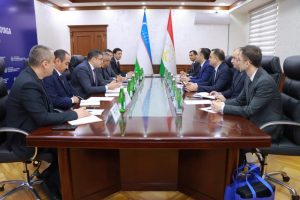 Tajik and Uzbek Anti-Corruption Agencies Discuss Expanding Cooperation
Tajik and Uzbek Anti-Corruption Agencies Discuss Expanding Cooperation Starlink Satellite Internet Launches in Tajikistan
Starlink Satellite Internet Launches in Tajikistan Austrian Company Andritz Hydro Seeks to Expand Cooperation with Tajikistan
Austrian Company Andritz Hydro Seeks to Expand Cooperation with Tajikistan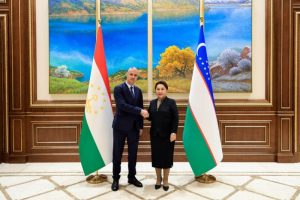 Ambassador of Tajikistan Meets with Chairperson of the Senate of Uzbekistan
Ambassador of Tajikistan Meets with Chairperson of the Senate of Uzbekistan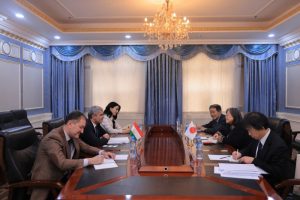 Tajikistan and Japan Discuss Cooperation within Regional and International Organizations
Tajikistan and Japan Discuss Cooperation within Regional and International Organizations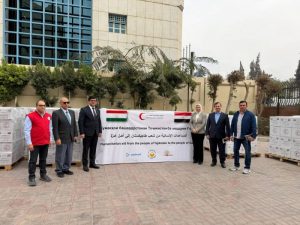 Tajikistan’s Humanitarian Aid to the People of Gaza
Tajikistan’s Humanitarian Aid to the People of Gaza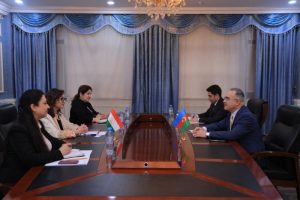 Bilateral Cooperation Between Tajikistan and Azerbaijan Discussed in Dushanbe
Bilateral Cooperation Between Tajikistan and Azerbaijan Discussed in Dushanbe Tajikistan Establishes Data Protection Center to Strengthen Cybersecurity
Tajikistan Establishes Data Protection Center to Strengthen Cybersecurity














